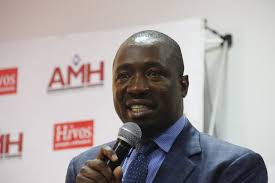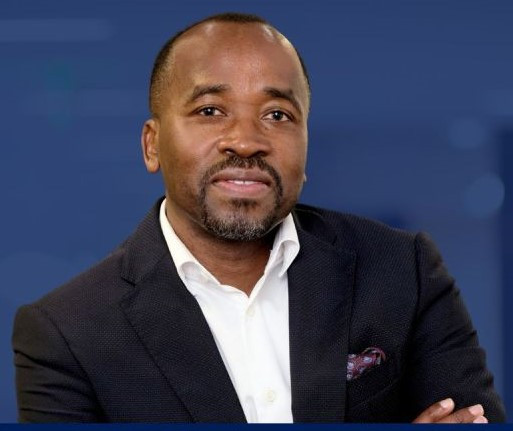
HIRING is the single most important job for every manager or leader. Yet, in many organisations, it is done haphazardly without the care and discipline it deserves.
The result is predictable: performance challenges, disengagement and wasted resources. The way an organisation hires determines not only who joins but also how it performs, innovates and sustains itself over time.
If you want to understand why some organisations thrive while others struggle, look closely at how seriously their leaders take the hiring process.
Every manager must understand that, regardless of the funding, technology or equipment available, without the right people, those resources will be wasted. Talent is the ultimate performance multiplier.
When you hire well, everything else becomes easier. When you hire poorly, everything else becomes harder.
You can have the best strategy; the most advanced systems and the most attractive compensation structure, but without people who have the right capability, skills, and values, progress will always stall.
Great organisations are not defined by their resources but by their ability to attract and retain people, who know how to use those resources effectively.
One of the biggest obstacles to great hiring is managerial self-interest. Too many managers make hiring decisions that prioritise their own interests or convenience over the organisation’s long-term success.
- Durban floods: South Africa floods kill more than 250 – officials
- Central bank to introduce 100-dollar note
- US joins calls for Masaraure’s release
- CSOs dare African countries to implement humane drug policies
Keep Reading
They hire people that will not challenge them, who think like them or who make them feel safe. They prefer familiarity over competence, loyalty over capability and compliance over courage. This is how mediocrity creeps into organisations.
Instead of building high-performing teams, such managers surround themselves with comfort zones disguised as employees. Over time, this culture of comfort leads to stagnation, politics and groupthink.
If you can put the interests of the organisation ahead of your own as a manager, you will stand out as one of the rare few who truly lead. It is a mark of maturity and integrity.
Great leaders hire people who are smarter than they are, more skilled than they are and confident enough to disagree with them.
They hire people who bring new perspectives and who stretch the team’s collective capability. Weak managers feel threatened by strong talent. Strong leaders, on the other hand, are energised by it because they understand that leadership is not about being the smartest person in the room. It is about building a team of smart people, who can help the organisation succeed.
Unfortunately, many managers struggle to achieve this fit between personal interests and organisational goals. The pressure to fill a vacancy quickly, avoid internal conflict or hire someone easy to manage often overrides the commitment to true performance.
The best leaders resist these temptations. They know that a bad hire is far more costly than a delayed hire.
Every wrong hire consumes leadership attention, demotivates other employees, and lowers the standard for what is acceptable performance. The ripple effects can be felt across departments and over time, across the entire organisation.
Every manager knows, deep down, that most of the performance problems they face can be traced back to poor hiring decisions. When employees fail to meet expectations, leaders often rush to fix the problem through performance management, coaching or training.
But the real issue is usually upstream. You cannot train integrity into someone who does not have it.
You cannot coach curiosity into someone who does not want to learn. You cannot motivate someone who fundamentally does not fit the culture.
The wrong people in the wrong roles will drain your time, energy and credibility. And when the people you hire into management positions are incompetent, the problem multiplies across the organisation. Bad managers not only fail in their roles; they also create pockets of dysfunction that erode trust, morale and productivity across teams.
The truth is simple but often ignored: great organisations are built one great hire at a time. Every hiring decision is a strategic decision. It shapes your culture, defines your capability and influences your future.
This is why the best companies in the world obsess over hiring. They see it not as an administrative process but as the most important act of leadership. They invest in structured interviews, psychometric assessments and clear criteria for evaluating candidates.
They train their managers to recognise talent objectively and to distinguish between personal biases and organisational needs. They understand that hiring is not about filling a vacancy but about building organisational capability for today and tomorrow.
To hire well, managers must develop discipline and humility. Discipline to follow a structured process that minimises bias and humility to accept that no one has perfect judgment. Great hiring combines science and judgment. It relies on data, evidence and proven predictors of job performance, such as cognitive ability, integrity, rather than intuition.
Hiring is not just an HR responsibility. It is a leadership responsibility. The best leaders do not delegate it to chance or convenience. They are deeply involved in defining what success looks like for a role, identifying the kind of person who can achieve it, and ensuring that the recruitment process reflects the organisation’s values.
They recognise that every person they bring into the organisation will either raise the standard or lower it. There is no neutral hire.
If organisations treated hiring with the same seriousness they treat financial decisions, their performance would transform. A single great hire can unlock new markets, solve long-standing problems and inspire an entire team. Conversely, a single bad hire can undo years of hard work and progress. The math is simple: good performance compounds and so does mediocrity.
The next time you are about to make a hiring decision, pause and ask yourself one question: if everyone in my organisation performed like the person I am about to hire, would we be proud of the results? If the answer is no, do not hire. The cost of waiting for the right person is far less than the cost of living with the wrong one.
Ultimately, hiring is the purest test of leadership. It reveals whether you think short-term or long-term, whether you prioritise comfort or capability and whether you serve your ego or your organisation.
The organisations that succeed are those led by managers who make informed choices, hire for potential and never compromise on talent. Because great organisations are not built by chance, they are built by leaders who understand that every hire is a bet on the future.
Nguwi is an occupational psychologist, data scientist, speaker and managing consultant at Industrial Psychology Consultants (Pvt) Ltd, a management and HR consulting firm. https://www.linkedin.com/in/memorynguwi/ Phone +263 24 248 1 946-48/ 2290 0276, cell number +263 772 356 361 or e-mail: [email protected] or visit ipcconsultants.com.











